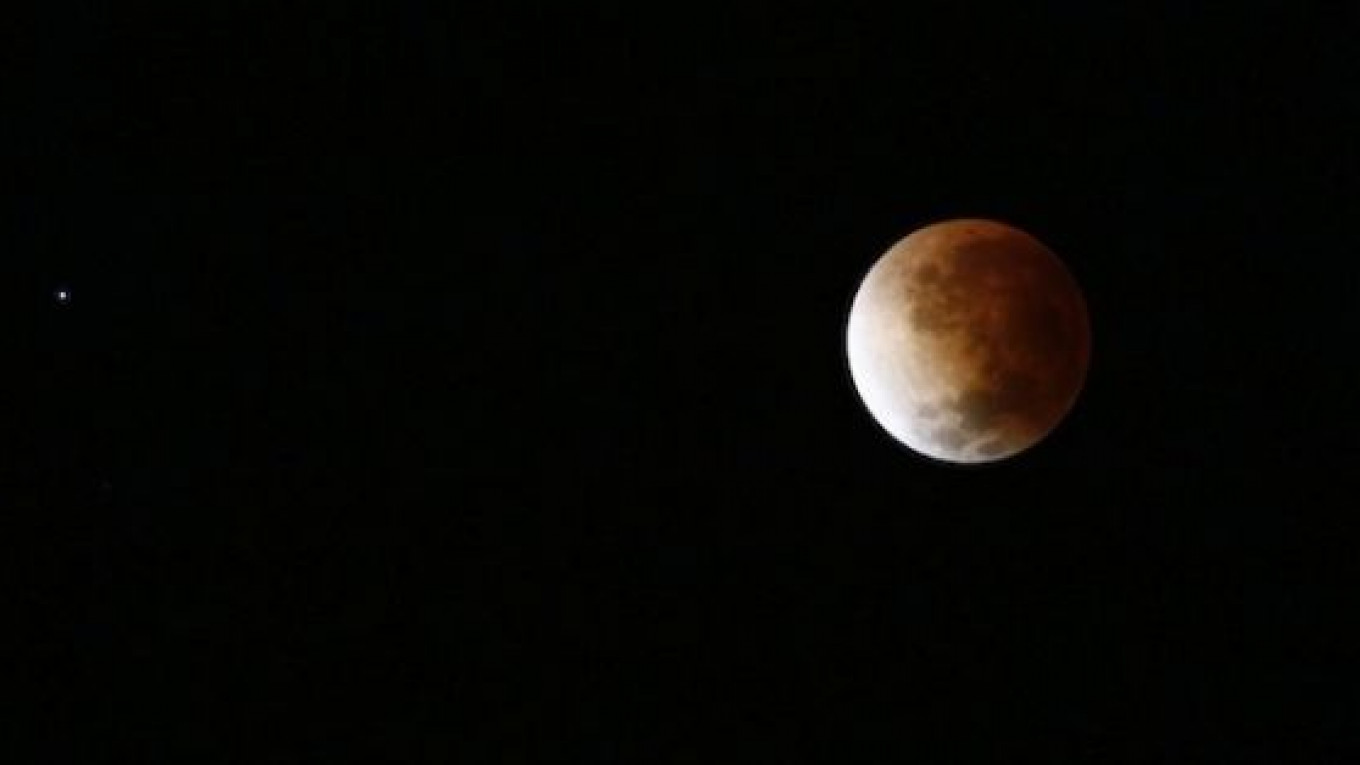Russia is planning to put a manned colony on the Moon as soon as in 2030, and is racing to dispatch the first robotic rovers to explore the lunar surface two years from now, a media report says.
Newspaper Izvestia said Thursday it had gained access to a draft government program, prepared by the Russian Academy of Sciences, the Roscosmos federal space agency, Moscow State University and several space research institutes, outlining a three-step plan toward manning the moon.
A robotic craft would be sent to the Moon as early as in 2016 and through the following decade, and by 2028, Russia would be ready to send manned missions to orbit the Earth's satellite, Izvestia said, citing the report.
In the final stage, planned for 2030, humans would be sent to the lunar surface to set up the infrastructure for an initial colony using local resources, the report said. The program also envisages building a space- and Earth-monitoring observatory on the Moon.
The Russian document underlined the need for speedy lunar exploration, saying "leading space powers will expand and establish their rights to convenient lunar footholds to ensure future opportunities for practical use," in the next 20 to 30 years, Izvestia cited the document as saying.
The price tag of the mission is uncertain, but the first stage of the program is expected to cost around 28.5 billion rubles ($815.8 million), while earlier estimates indicated that developing and building a piloted spaceship would add 160 billion rubles or so, though Russia hopes to attract private investors to help bankroll the project, the report said.
But while the program envisages international cooperation on the project, it stresses that the "independence of the national lunar program must be ensured regardless of the conditions and the extent of the participation in it by foreign partners."
Lunar resources may present a "treasure-trove" of rare and valuable minerals of substantial strategic importance, according to NASA, but the concentration and the distribution of those elements remain uncertain.
The Moon can also be used as a launchpad for future missions into deep space, said the research chief of the Institute of Space Policy, Ivan Moiseyev, Izvestia reported.
China, India and Japan are also developing lunar exploration projects, and a California-based company Moon Express is planning to send its first robotic spacecraft to the satellite next year, according to the company's website.
See also:
A Message from The Moscow Times:
Dear readers,
We are facing unprecedented challenges. Russia's Prosecutor General's Office has designated The Moscow Times as an "undesirable" organization, criminalizing our work and putting our staff at risk of prosecution. This follows our earlier unjust labeling as a "foreign agent."
These actions are direct attempts to silence independent journalism in Russia. The authorities claim our work "discredits the decisions of the Russian leadership." We see things differently: we strive to provide accurate, unbiased reporting on Russia.
We, the journalists of The Moscow Times, refuse to be silenced. But to continue our work, we need your help.
Your support, no matter how small, makes a world of difference. If you can, please support us monthly starting from just $2. It's quick to set up, and every contribution makes a significant impact.
By supporting The Moscow Times, you're defending open, independent journalism in the face of repression. Thank you for standing with us.
Remind me later.






